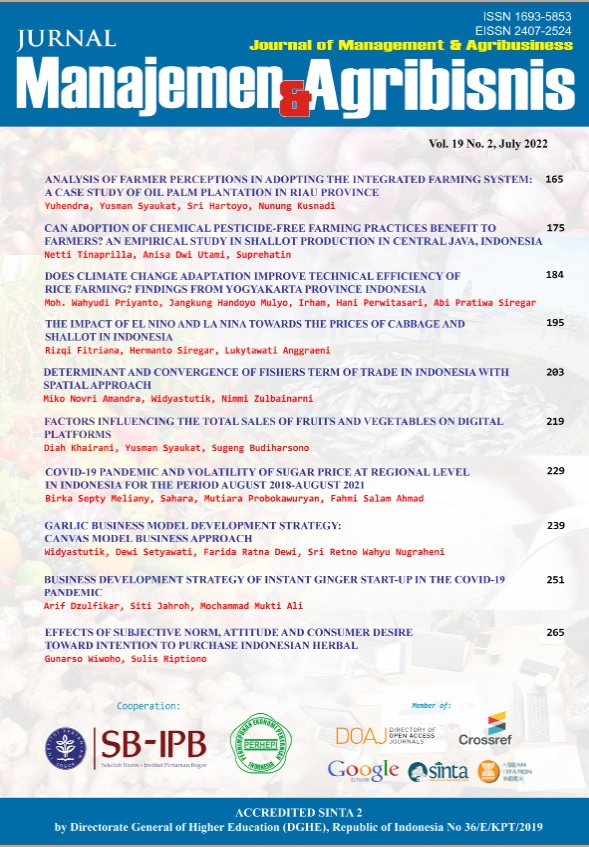Effects of Subjective Norm, Attitude and Consumer Desire Toward Intention to Purchase Indonesian Herbal
Abstract
Jamu is a traditional Indonesian medicinal beverage that has been a heritage product for generations. This research focuses on testing latent constructs used in empirical models to measure the intention of consumers to purchase Javanese Traditional Herbal Medicine Beverage, which is called Jamu or Indonesian herbal. This study involved 318 survey responses from society in Central Java, Indonesia. Data were collected using purposive sampling and analyzed using structural equation modeling (SEM) with AMOS. The results showed that two hypotheses were rejected of the six hypotheses tested there. Subjective norms are proven to positively affect consumer attitudes and desires but do not significantly to consumer purchase intention on Jamu. Furthermore, consumer attitude successfully contributed positively to increasing consumer desire but insignificant toward consumer purchase intention on Jamu. The other findings revealed that consumer attitude has the greatest role in increasing consumer desire, and consumer desires proved the best precursor of consumer intention to purchase Jamu.
Keywords: subjective norm, attitude, intention, jamu, java
Authors
Authors who publish with this journal agree to the following terms:
- Authors retain copyright and grant the journal right of first publication with the work simultaneously licensed under a Creative Commons Attribution License that allows others to share the work with an acknowledgement of the work's authorship and initial publication in this journal.
- Authors are able to enter into separate, additional contractual arrangements for the non-exclusive distribution of the journal's published version of the work (e.g., post it to an institutional repository or publish it in a book), with an acknowledgement of its initial publication in this journal.
- Authors are permitted and encouraged to post their work online (e.g., in institutional repositories or on their website) prior to and during the submission process, as it can lead to productive exchanges, as well as earlier and greater citation of published work (See The Effect of Open Access).

